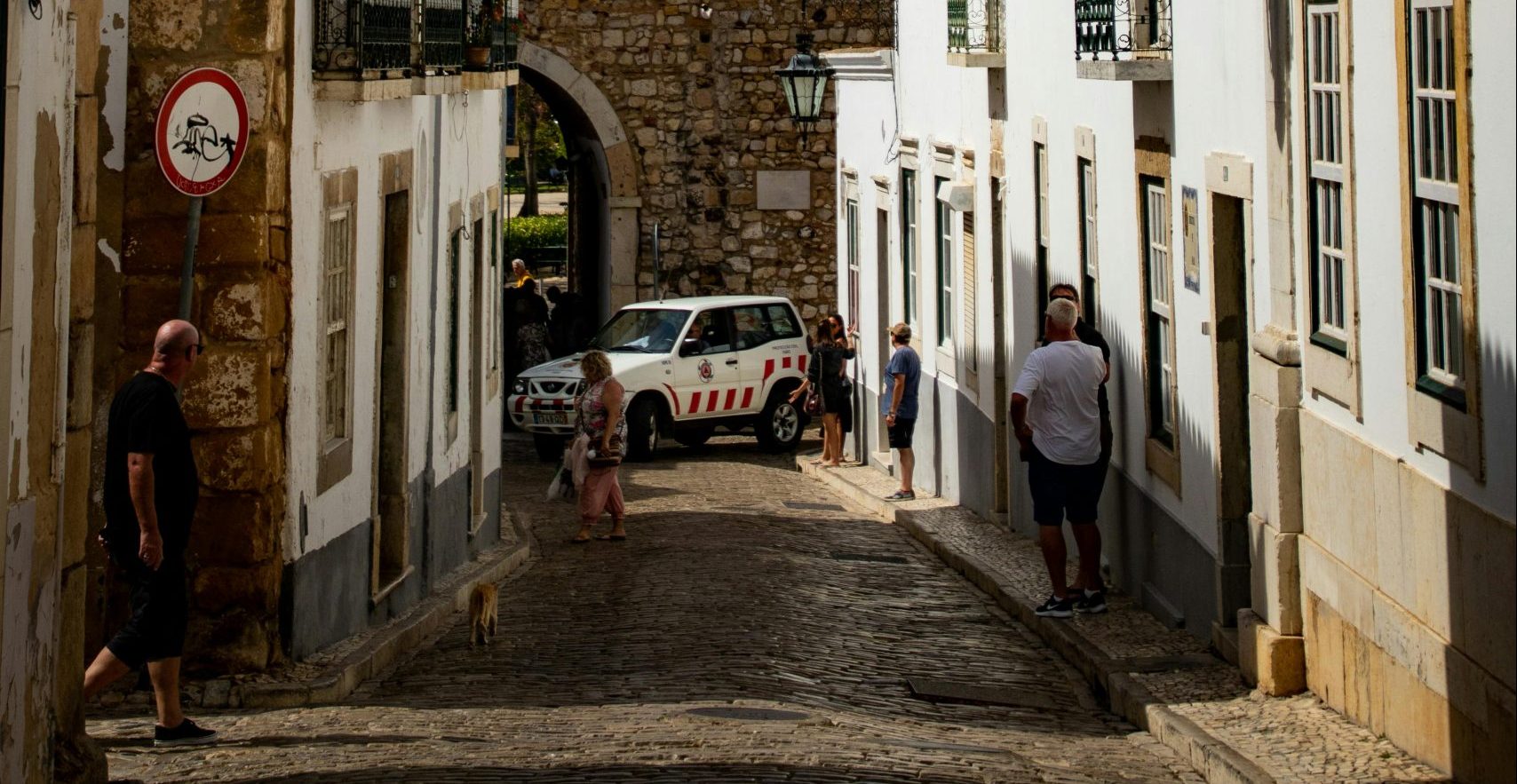
Portugal is known for its rich culinary heritage and affordable dining options, making it a fantastic destination for food enthusiasts. Despite lower wages compared to countries like the US and the UK, food prices in Portugal are not proportionally lower. However, dining out remains affordable for most expats and travellers.
Eating out in Portugal can be affordable, especially if you know where to go. Local markets and smaller, family-run restaurants often provide the best value. For example, a basic lunchtime menu in the business district costs around €11, and combo meals at fast food restaurants are about €8. Additionally, many restaurants offer ‘menu of the day’ deals, which include multiple courses and a drink for €10 or less.
Dining out in Portugal is relatively affordable compared to other Western European countries. A three-course meal for two at a mid-range restaurant typically costs around €30-€40. Inexpensive restaurants offer meals ranging from €7.50 to €15, making it easy to enjoy local cuisine without exceeding your budget. For those on a tighter budget, fast food options known worldwide can cost around €8 for a combo meal. But if you’re looking for a fast food brand in Portugal that offers higher quality ingredients than the leading fast food chains, you might want to try artisanal types. They have become trendy and known for their diversity, ranging from simple to gourmet, cheap to pricey. For instance, burgers made with fresh, high-quality ingredients offer a noticeable upgrade from typical fast food fare.
In Portugal, it’s common to find bread and other small appetisers placed on your table at restaurants before you even order. But be careful, these items are not free; you will be charged for eating them. The cost is usually minimal, around €1 to €2, but it’s good to be aware so you can decline them if you’re trying to save money.
Street food in Portugal offers a delightful and budget-friendly dining experience, perfect for newcomers and tourists. A must-try is the famous pastel de nata (custard tart), typically priced around €1 to €2 each, making for an affordable and delicious treat. Other popular street food items include bifanas (pork sandwiches) and pregos (steak sandwiches), often available for €3 to €5. These sandwiches are made with high-quality ingredients like tender pork or beef, seasoned with garlic and spices, and served on fresh bread rolls, providing a hearty and satisfying meal. Additionally, bolinhos de bacalhau (codfish cakes) and piri-piri chicken are widely enjoyed and offer a taste of traditional Portuguese flavours at reasonable prices. Whether you’re strolling through local markets or enjoying a street food festival, Portugal promises a variety of tasty and affordable options. These street foods not only provide an affordable way to enjoy traditional Portuguese flavours but also offer a glimpse into the country’s rich culinary culture.
Here is a resume of Portuguese popular food beyond the pastel de nata:
When enjoying street food in Portugal, looking for vendors that maintain cleanliness and have a steady stream of customers is essential, indicating that the food is fresh and popular. Opting for well-known markets like Mercado da Ribeira in Lisbon or Mercado de Campo de Ourique ensures a variety of fresh and budget-friendly options. The Mercado do Bolhão in Porto and Mercado da Vila in Cascais are also excellent choices, known for their fresh seafood, local produce, and vibrant atmospheres. Always check the food’s freshness, avoiding anything that looks like it has been sitting out for too long. Portuguese street food staples, as we mentioned above, include bifanas (pork sandwiches), pastéis de bacalhau (codfish cakes), and bolas de Berlim (custard-filled doughnuts), often found at local festivals and street fairs.
In Portugal, the food quality is exceptionally high, with a strong emphasis on fresh, local ingredients across its diverse cities. Lisbon offers gourmet and traditional flavours, although prices can be higher in tourist areas. Porto combines old-fashioned taverns and innovative restaurants, with Mercado do Bolhão being a top spot for fresh seafood and local produce. However, it can get crowded due to its rising popularity. Braga provides an affordable and authentic experience featuring the Mercado Municipal de Braga, ideal for high-quality food without the tourist influx. In Funchal, Madeira, the Mercado dos Lavradores offers exotic fruits, fresh seafood, and local delicacies. However, some imported goods might be pricier due to its island location. Lastly, Faro in the Algarve is renowned for its seafood and regional specialities, with the Mercado Municipal de Faro being a highlight, though prices can increase during the tourist season. Each city presents unique culinary delights, ensuring fresh and delicious options with more affordable finds slightly off the beaten path.
Eating healthy on a budget in Portugal is quite feasible. Buying seasonal produce from local markets, cooking at home, and taking advantage of special deals and discounts can help maintain a healthy diet without overspending. For instance, buying bulk staples like rice, pasta, and legumes can significantly reduce food costs. Proper storage of fresh produce, such as keeping vegetables in a cool, dark place and using airtight containers, can extend their shelf life and save money.
Eating habits in Portugal differ from those in the UK, primarily emphasising fresh, locally sourced ingredients and the Mediterranean diet. While the UK has a diverse food scene with a wide range of international cuisines, Portuguese cuisine focuses on traditional dishes made with fresh, local produce. The cost of dining out in Portugal is generally lower than in the UK, making it easier for expats to enjoy meals at restaurants regularly without significant expense.
Portugal has seen recent changes in food regulations, particularly in the labelling and quality control of industrialised food products. The government has implemented stricter guidelines to ensure food safety and quality. For newcomers, it’s advisable to familiarise themselves with these regulations to avoid purchasing unhealthy items and to focus on fresh, locally sourced foods that are abundant in Portuguese markets.
Moving to Portugal can be exciting, and understanding the local food scene is just one part of the journey. With affordable and high-quality food options, eating well in Portugal is appealing and achievable. If you’re considering moving to Portugal, VanOne can assist with all aspects of your move, from customs clearance to safely transporting your belongings. Here at VanOne International Movers, we offer a range of services, including tailored service, house removals to Portugal and fully insured transportation. Our assistance ensures your belongings are handled carefully, whether you choose door-to-door collection or prefer storing them in a warehouse. Contact us today for a free quote.
 Why Are Italians Moving to Portugal?
Why Are Italians Moving to Portugal?Why Are Italians Moving to Portugal? In recent years, many Italians have decided to leave their homeland and…
 What is Expat Burnout? Causes, Symptoms, and Solutions
What is Expat Burnout? Causes, Symptoms, and SolutionsWhat is Expat Burnout? Causes, Symptoms, and Solutions Expat burnout, often referred to as expatriate burnout, is a…
 Moving Abroad and Leaving Pets Behind
Moving Abroad and Leaving Pets BehindMoving Abroad and Leaving Pets Behind Relocating to a new country often brings excitement but can also involve…
 Where is the best place for the elderly to live in Europe?
Where is the best place for the elderly to live in Europe?Where is the best place for the elderly to live in Europe? Moving abroad presents opportunities and challenges,…